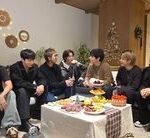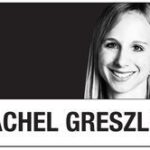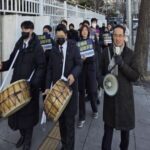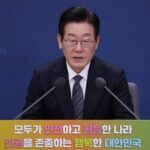North Korea’s Foreign Currency Earning Control Tower
Illegal Acts like Drug Trafficking and Hacking
Gathering Funds for North Korean Rule

Recently, North Korea has been seen exerting efforts to earn foreign currency, such as seizing the wages of overseas workers and even requiring service workers to hand over their tips to the authorities.
It’s an admitted fact that all the foreign currency earned by these overseas workers flows into North Korea’s Workers’ Party Office and Room 39. So, when did the dollars earned by North Korea start accumulating in Room 39?
Room 39 of the Workers’ Party, which manages Kim Jong Un’s governing funds, is believed to have been established in the mid-1970s.
After abolishing the existing People’s Democratic Constitution in 1972, North Korea adopted the Socialist Constitution of the Democratic People’s Republic of Korea, institutionalizing Kim Il Sung’s sole leadership by implementing a State Presidency system.

Until then, there was no separate place managing Kim Il Sung’s governing funds, but when Kim Jong Il became his successor, he set up Room 39 to control the governing funds. This was due to the nationwide foreign currency earning movement in North Korea, which necessitated national management of governing funds.
Initially known as the President’s Fund, it was renamed to a department managing governing funds after Kim Il Sung passed away.
While Kim Il Sung was alive, the funds collected in Room 39 could be used at his discretion.
The national budget was allocated at the beginning of the year, and due to North Korea’s economic situation, there were insufficient reserves, making Kim Il Sung’s funds necessary. When he needed to conduct immediate financial operations, it was known that he instructed, “Use the President’s fund.”
After Kim Il Sung’s death, Kim Jong Il took over the government and it is speculated that the money going into nuclear or missile development was handled by Room 39 of the Workers’ Party, hence it was no longer called the President’s fund but governing funds.
In Kim Jong Il’s regime, Room 39 of the Workers’ Party established around 120 companies, such as Daesong General Bureau and Daesong General Trading Corporation, earning substantial foreign currency.

Daesong General Bureau, one of the largest companies established by the North Korean government, is known as a company that manufactures and exports clothing and textiles. The substantial revenue generated here goes into Room 39, along with foreign currency earned through illegal businesses like drug trafficking and counterfeit money.
As a result, Room 39 of the Workers’ Party is infamous for doing anything for money.
In 2006, the U.S. House Intelligence Committee estimated that Room 39 of the Workers’ Party had about $4 billion, making an annual income of $300-500 million. Because much time has passed since then, it is estimated that the funds accumulated in Room 39 of the Workers’ Party have doubled.
Recently, North Korea has been caught continuously developing thousands of illegal gambling sites through its IT organization and selling them to domestic criminal organizations.

According to data released by the South Korean National Intelligence Service in February, these organizations under Room 39 of the Workers’ Party, including Gyeongheung Information Technology Exchange Company operating in Dandong, China, were found to be making an average of $500 per person per month by producing gambling sites for adults and teenagers and remitting it to Pyongyang.
The South Korean National Intelligence Service announced the investigation results, suggesting that Gyeongheung, an organization under Room 39 that collects Kim Jong Un’s slush funds, disguised themselves as Chinese developers, stole the resumes of IT industry workers, took orders to create illegal gambling sites, and supplied them to Korean criminal organizations.
Gyeongheung’s staff members received about $5,000 per site creation and an additional monthly income of about $3,000. They received the development fees through bank accounts under Chinese names, pseudonyms, and PayPal service, which is convenient for overseas remittances. They cashed them in banks in China and transferred them to Room 39 in North Korea.
The role of Room 39 of the Workers’ Party does not end here. Continuous testimony from North Korean sources has shown that Room 39 of the Workers’ Party has been in charge of importing luxury goods for the Kim family in North Korea.

In fact, in 2019, Ryu Hyeon Woo, former deputy ambassador of North Korea to Kuwait who defected to South Korea, testified that “Room 39 of North Korea has overseen the mass purchase of luxury goods such as watches and liquor since the era of Kim Jong Il “.
This testimony seems highly credible as Ryu Hyeon Woo is the son-in-law of Jon Il Chun, the former head of Room 39.
According to the 2016 North Korean Power Structure released by the South Korean Ministry of Unification on September 29, 2016, Room 38, which existed in the 2015 North Korean Power Structure, was removed from the Workers’ Party’s professional department.
In 2008, North Korea integrated Room 38 into Room 39. At that time, Room 38 was in charge of managing the private funds and materials of Kim Jong Un, the then-chairman of the National Defense Commission. They separated again in 2010.
However, it seems that they have once again abolished Room 38 and integrated it into Room 39 to improve the efficiency of governing fund management and unify the organization to evade sanctions against North Korea.















Most Commented